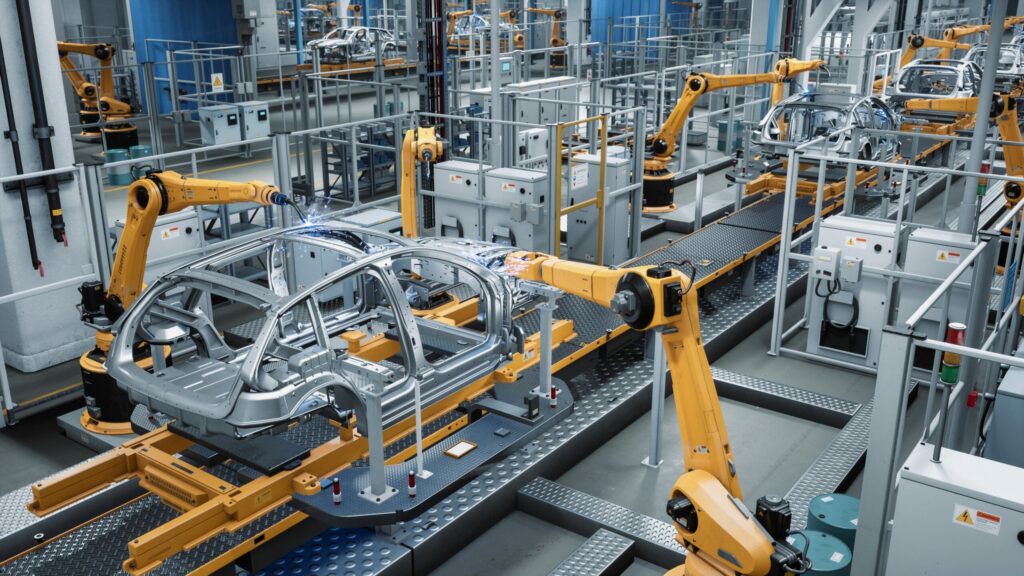The world is witnessing a rapid shift towards sustainable transportation, and electric vehicles (EVs) are at the forefront of this revolution. With growing concerns about environmental pollution and climate change, EVs offer a cleaner and more efficient alternative to traditional gasoline-powered vehicles. As demand for EVs continues to surge, understanding the intricate electric vehicle manufacturing process becomes crucial. This article delves into the various stages involved in EV production, shedding light on the key technologies and challenges that shape the future of transportation.
The Electric Vehicle Manufacturing Process
The manufacturing process of an EV can be broadly divided into the following stages:
1. Body and Chassis Manufacturing:
The initial stage involves the construction of the vehicle’s body and chassis, which is similar to the process for traditional cars. This includes stamping, welding, and painting the body panels, as well as assembling the chassis components like the frame, suspension, and steering system.
2. Battery Production:
The heart of an EV is its battery, which requires a specialized manufacturing process. The first step is the production of battery cells, which involves the processing of raw materials like lithium, cobalt, and nickel. These cells are then assembled into modules and integrated into the battery pack, which is a complex and critical stage in EV manufacturing.
3. Electric Motor and Powertrain Assembly:
The electric motor, which powers the EV, is manufactured separately and then integrated with the powertrain components like the transmission and differential. This stage also includes the installation of the electronic control systems that manage the power flow and performance of the vehicle.
4. Final Assembly and Testing:
In the final stage, the various components of the EV are brought together on the assembly line. This includes the installation of the interior, exterior, and electrical systems. The vehicle then undergoes rigorous testing to ensure safety, performance, and reliability before it is ready for delivery to the customer.
Key Challenges in EV Manufacturing
While the electric vehicle manufacturing process shares similarities with traditional car production, it also presents unique challenges. Some of the key challenges include:
1. Battery Technology:
The development and production of high-performance, cost-effective batteries are critical to the success of EVs. Battery technology is constantly evolving, and manufacturers must stay at the forefront of innovation to meet the increasing demand for EVs.
2. Charging Infrastructure:
The availability of charging infrastructure is a significant factor in the adoption of EVs. Governments and private companies are investing in the development of charging stations, but there is still a need for a more extensive and reliable charging network.
3. Manufacturing Cost:
The cost of manufacturing EVs is still higher than that of traditional cars. This is mainly due to the high cost of batteries and other components. However, as production volumes increase and technology improves, the cost of EVs is expected to decrease.
The Future of Electric Vehicle Manufacturing
The electric vehicle manufacturing process is rapidly evolving, with advancements in battery technology, automation, and manufacturing processes. The increasing demand for EVs is driving innovation and investment in the EV industry, leading to the development of more efficient, affordable, and sustainable vehicles.
Read too: Exploring the Future of Sustainable Mobility with the New Golf Electric Car: A Comprehensive Review
Conclusion
The electric vehicle manufacturing process is a complex and fascinating process that is at the heart of the transportation revolution. As the demand for EVs continues to grow, manufacturers are constantly innovating and improving the production process to meet the needs of consumers and create a sustainable future for transportation.
